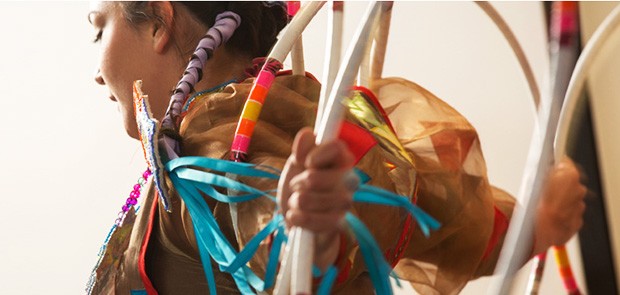The rebirth of a national Native Studies conference

After a seven-year hiatus the Canadian Indigenous/Native Studies Association’s (CINSA) Annual Conference will be reborn from June 11-13, 2015 at Concordia University.
The First Peoples Studies Program (FPST) and Concordia University are honoured to be hosting this renewed event. The organizers drew on Anishinaabeg prophecy and recent movements in Indigenous and Canadian society to come up with the theme for the conference, “Survivance and Reconciliation: 7 Forward 7 Back.”
CINSA’s executive committee decided that the newly inaugurated FPST program at Concordia University would be the ideal host for a re-launch of the society and its annual conference. This honour and challenge speaks to the respect and standing that FPST and Concordia has, and continues to gain, in the field of Indigenous Studies. The event will give Concordia an opportunity, not only to host a conference but to showcase its recent efforts at indigenizing the academy.
The conference’s theme draws on the Anishinaabeg perspective that calls upon all people to consider themselves as a central point looking forward seven generations as well as seven generations back. With this perspective in mind, participants will address how First Peoples’ ancestors, while struggling against colonialism, ensured that our communities, cultures and languages would survive and eventually enjoy a renaissance.
Yet the concept of survivance is more than simply survival, it speaks to the idea that our cultures and Peoples have changed and grown, and will continue to do so. Now the current generation is looking forward seven generations to ensure our continued survival as Peoples with vibrant cultures. As part of the process we have embarked on a path of reconciliation with ourselves and settlers. We hope that such efforts will help ensure our collective survivance through reconciliation.
Hosted by the newly established First Peoples Studies program, the conference will have more than 200 presenters and speakers sharing their collective knowledge on everything from land claims to literature, film, education, urban issues and the environment.
The conference is not strictly academic, with community members as well as elders and artists being offered a place to speak or perform. By acknowledging and supporting all forms of knowledge transmission, we are seeking to present a more holistic version of how knowledge is created, transmitted and learned.
In addition, both contemporary and traditional cultural workshops have been added to the program – basket making and beading as well as spoken word performance and artistry. Organizers convinced Drew Hayden Taylor — Anishinaabeg playwright, author and comedian — to not only perform at the feast on June 12, but to offer a workshop on June 11 for 20 participants.
Finally, since the conference is being held in Quebec, organizers have created sharing circles that will look at issues within the province, such as the state of Indigenous Arts, the 40th anniversary of the groundbreaking James Bay Agreement of 1975 and the 25th anniversary of the Oka Crisis.
In keeping with the theme of the conference, each sharing circle is going to look at the past, present and future within the context of survivance and reconciliation.
Karl Hele is the chair of the Canadian Indigenous/Native Studies Association’s (CINSA) Annual Conference, and director of the First Peoples Studies program in the School of Community and Public Affairs at Concordia.
Registration for the Canadian Indigenous/Native Studies Association’s [CINSA] Annual Conference at Concordia from June 11-13 is open to everyone.